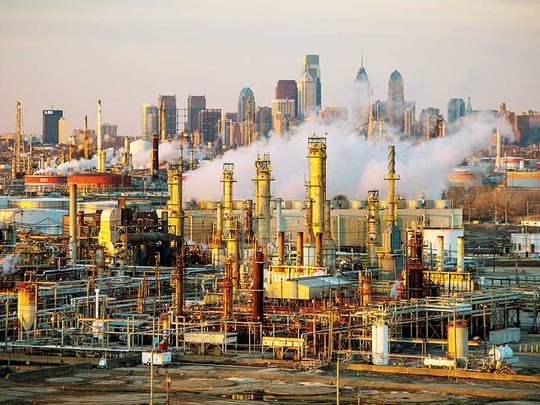
London: Oil traded near $52 a barrel as Opec reported record compliance with pledged production cuts and US drilling slowed again.
December futures were little-changed in New York. Opec and its partners including Russia achieved a record-high level of compliance to output cuts during September, according to a statement on Saturday. In the US, drillers reduced the rig count for a third week to the lowest since June, according to Baker Hughes.
Oil is holding a second week of gains after the strongest signal yet that the Organisation of Petroleum Exporting Countries will extend supply curbs until the end of 2018. Tensions in Iraq, where the army has been retaking areas around Kirkuk from Kurdish forces, also helped to support prices the past week as pipeline flows from the region were disrupted.
“The lower US rig count number, the Opec compliance number and the geopolitical headlines from northern Iraq and Iran on sanctions have helped futures higher,” Ole Hansen, head of commodity strategy at Saxo Bank A/S said. “But there are signs the market could be weakening with the seasonal refinery demand slowdown.”
West Texas Intermediate for December delivery gained 3 cents to $51.87 (Dh191) a barrel on the New York Mercantile Exchange at 11:23am. London time. Total volume traded was about 16 per cent below the 100-day average. The November contract expired Friday after gaining 0.4 per cent to $51.47.
Brent for December settlement fell 9 cents, or 0.2 per cent, to $57.66 a barrel on the London-based ICE Futures Europe exchange. Prices rose 1 per cent last week, a second weekly gain. The global benchmark crude traded at a premium of $5.75 to WTI.
One sign that demand could be weakening is the Brent market structure known as backwardation — when prompt prices are more expensive than later-dated futures — which isn’t as strong as a month ago, said Hansen.
Compliance with the Opec-led cuts was 120 per cent last month, according to the group’s Joint Ministerial Monitoring Committee. Commercial oil stocks in members of the Organisation for Economic Cooperation and Development fell further in the month and now stand at 159 million barrels above the five-year average, the JMMC said.












